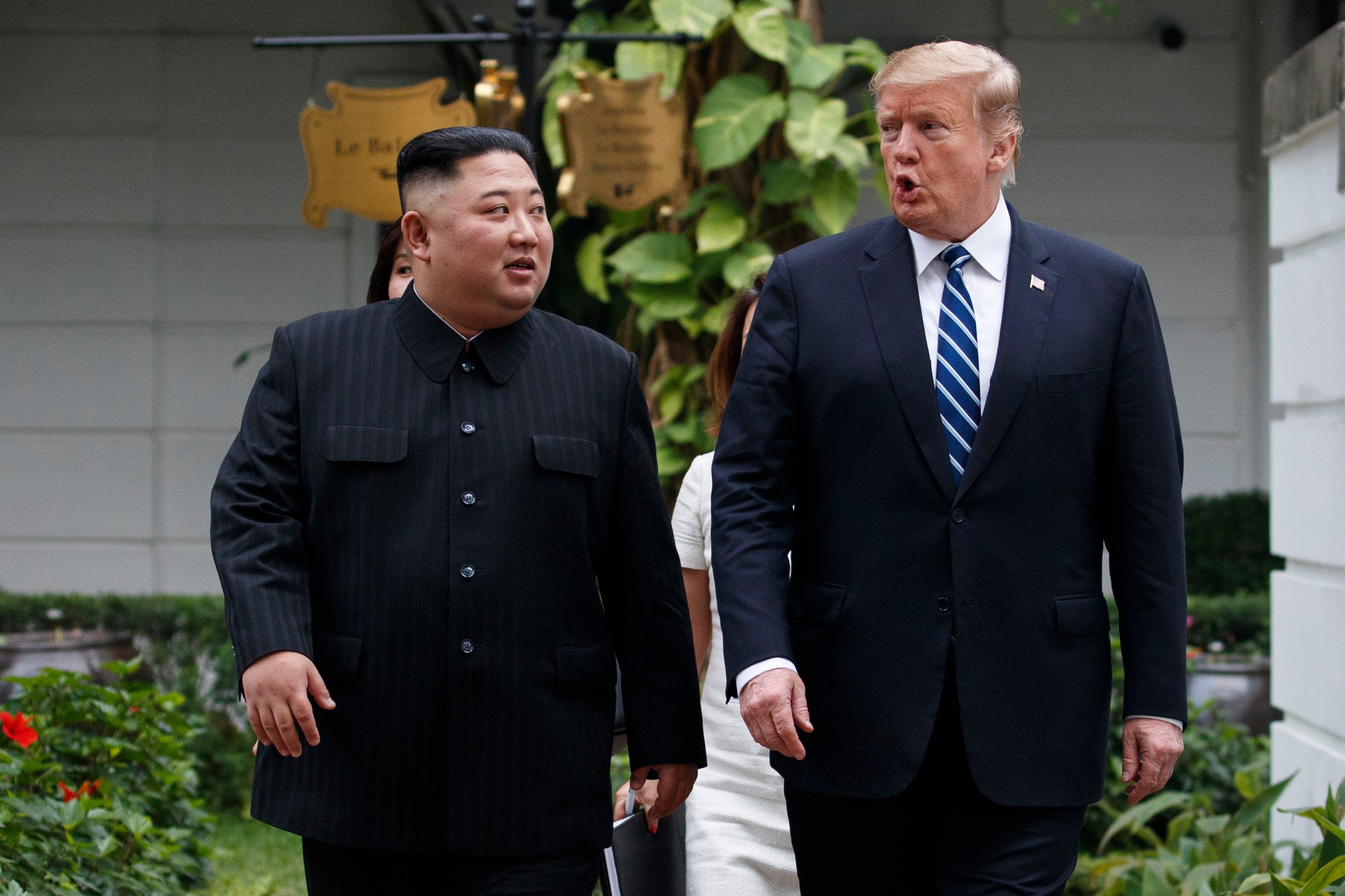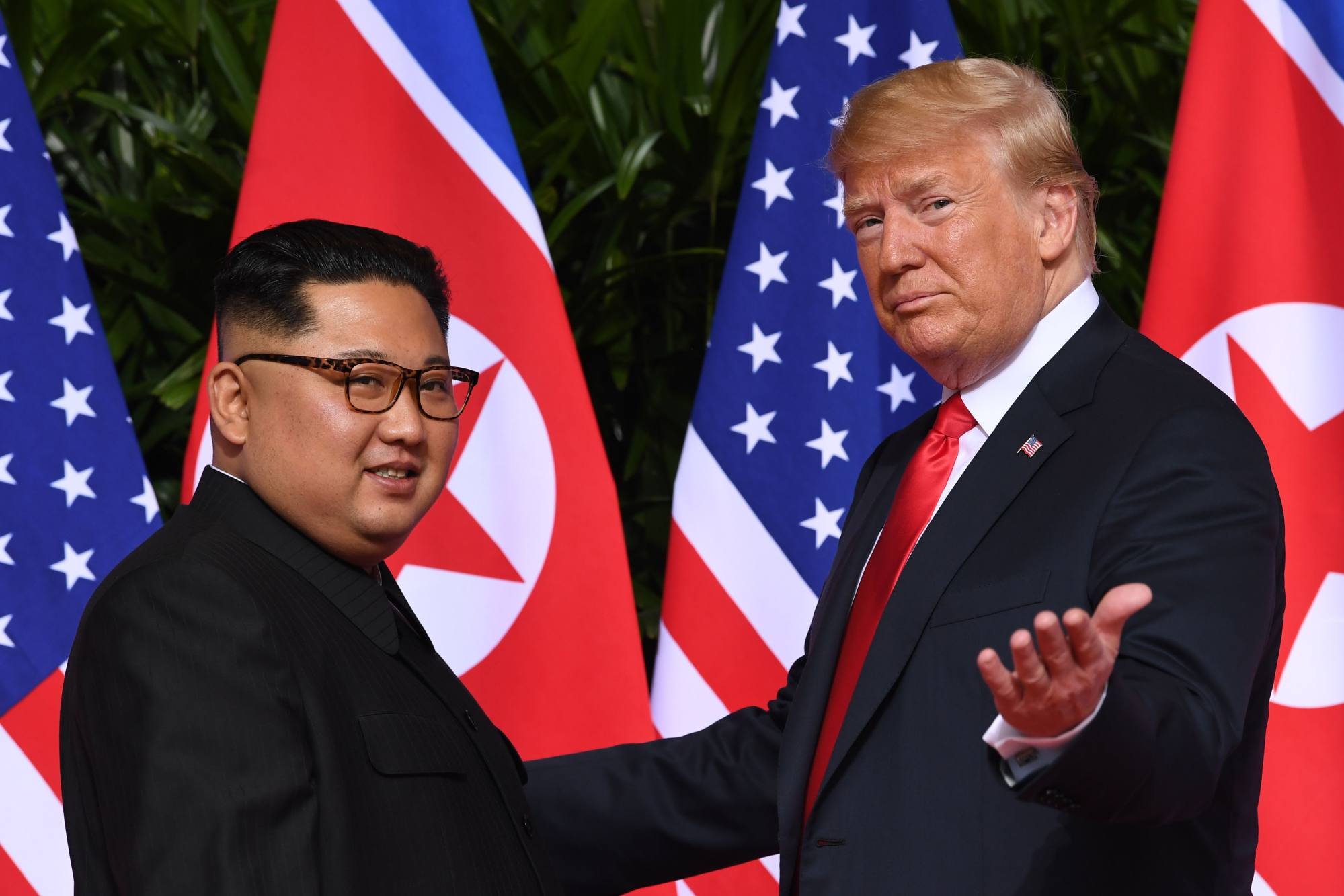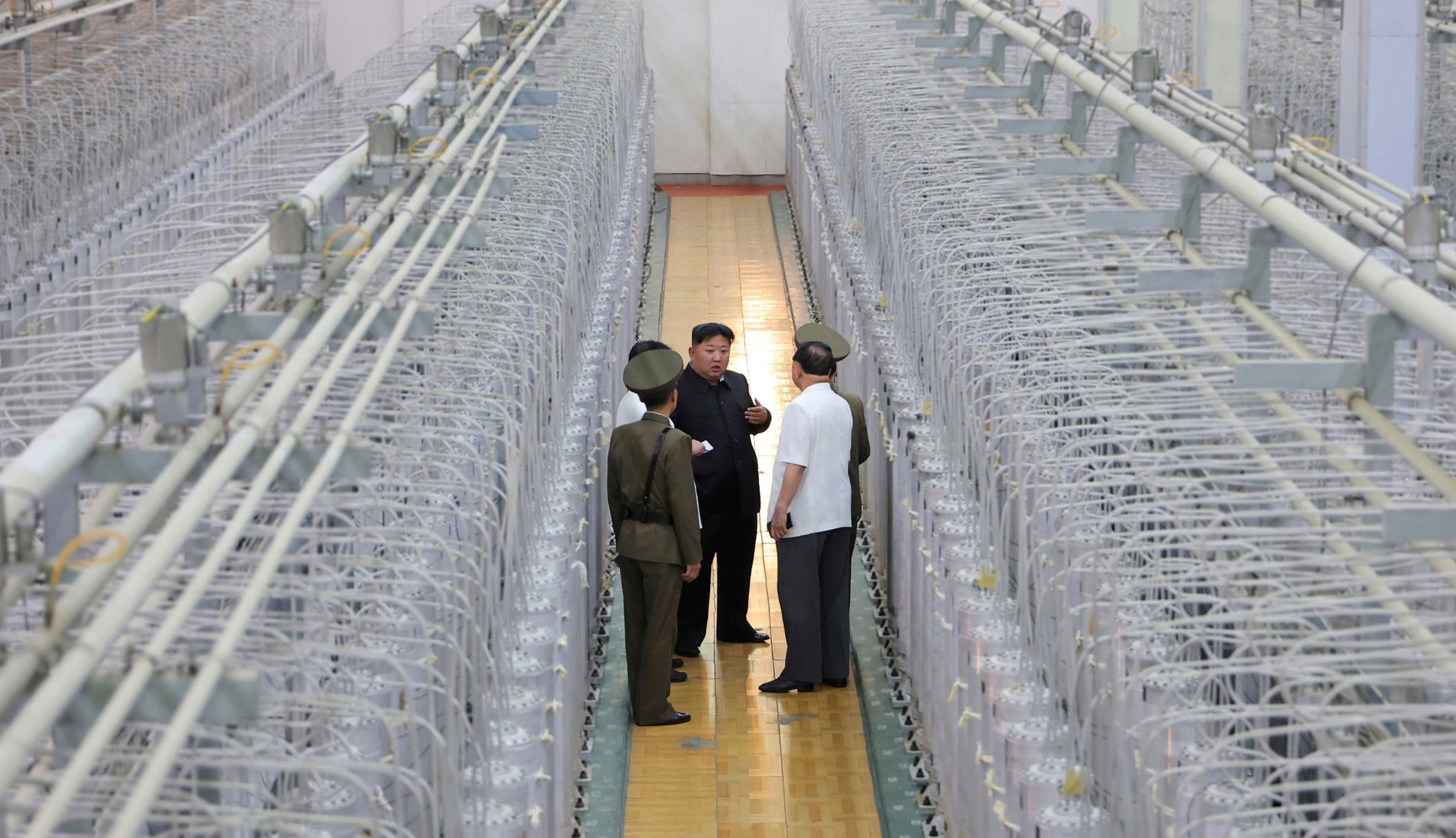Hanoi hangover: why North Korea’s Kim snubs Trump for Russia’s embrace
Analysts say Kim views the 2019 summit’s failure as a personal insult and is now more focused Russia, despite Trump’s continued overtures

North Korea’s growing alignment with Russia is giving Kim Jong-un new diplomatic and economic latitude, analysts say, allowing him to harden his stance and making renewed talks with Donald Trump even less likely amid lingering distrust from their failed summit during the US president’s first term.
Trump has signalled fresh interest in direct engagement with North Korea, with the White House confirming last week that “the president remains receptive to correspondence with Kim Jong-un” following reports that Trump had sent another letter to Pyongyang – which North Korean officials declined to accept.
But analysts say Kim is increasingly unwilling to risk another high-profile encounter, citing lingering scepticism after the collapse of the 2019 Hanoi summit, which damaged his domestic standing and deepened distrust of Washington’s intentions.
Instead, North Korea appears focused on strengthening its military capabilities and bolstering internal stability, while pursuing what Hong Min, a senior researcher at the Korea Institute for National Unification, describes as “peaceful but cold coexistence” with South Korea.

“There is little possibility of the North returning to talks in the foreseeable future, as Washington has yet to present any concrete policy towards Pyongyang,” Hong told This Week in Asia.
“Moreover, Pyongyang remains deeply sceptical of Trump’s overtures. Kim saw the failure of the Hanoi summit as a personal insult – it turned out to be little more than political theatre for Trump.”
Even if new talks were to take place, Hong argued, any agreement would face considerable uncertainty, both over its implementation timeline and the willingness of a future US administration to uphold it.
In the meantime, North Korea was likely to avoid provocations such as intercontinental ballistic missile launches or nuclear tests while maintaining its military build-up.
“It may feign interest in dialogue through working-level contacts simply to prevent Trump from responding aggressively,” he said.
Kim saw the failure of the Hanoi summit as a personal insult – it turned out to be little more than political theatreHong Min, Korea Institute for National Unification
Amid speculation that Trump might visit South Korea for the Asia-Pacific Economic Cooperation summit in October, South Korean lawmaker Park Jie-won suggested the US president could use the opportunity to pursue another meeting with Kim.
“I believe President Trump’s current goal is the Nobel Peace Prize,” Park said in a YouTube news talk show on Thursday. “He will definitely try to improve North Korea–US relations. A second Trump administration is well-positioned to win the prize if it can help bring a ceasefire in Ukraine and make progress on the North Korean nuclear issue.”
Koh Yu-hwan, a professor of North Korean Studies and director of the Institute of North Korea at Dongguk University in Seoul, said Pyongyang was likely to “tread very cautiously” to avoid a repeat of the political humiliation Kim suffered in Hanoi.
“Since 2019, the threshold for dialogue has risen sharply as the North–US confrontation has been replaced with a broader global stand-off between pro-West and anti-West blocs,” Koh said
According to Koh, Pyongyang’s survival strategy has shifted away from seeking normalisation with the US to deepening its alliance with Moscow, which now serves as a vital diplomatic and economic partner.
“Given the current circumstances, Pyongyang sees no reason to enter talks with the US, which would inevitably require it to give up its nuclear weapons,” he said, adding that negotiating with Washington would also undermine Pyongyang’s domestic propaganda narrative that urged citizens to reject outside influences and remain self-reliant.
Possible pathways for dialogue
Even as prospects for near-term talks remain dim, some experts continue to outline possible frameworks for re-engagement.
Park Won-gon, a professor at Ewha Womans University, said Pyongyang could insist on the suspension of US–South Korea joint military exercises and the withdrawal of US strategic assets from the Korean peninsula as conditions for any new talks.
Yang Moo-jin, president of the University of North Korean Studies in Seoul, suggested that a limited “window of opportunity” might emerge later this year, potentially aligning with developments in the Russia–Ukraine conflict and the conclusion of North Korea’s current five-year defence plan.

A joint report published on Thursday by the Hudson Institute think tank, titled “Deals, Deadlocks, and Deterrence: Scenarios for Renewed US–North Korea Diplomacy”, surveyed a range of experts on how Washington might seek to re-engage Pyongyang.
Frank Aum, a senior expert on Northeast Asia at the US Institute of Peace, called for a pragmatic interim agreement centred on “stable coexistence”, proposing reciprocal steps such as scaling back US–South Korea military exercises in exchange for North Korea freezing nuclear and long-range missile tests.
Aum suggested sectoral sanctions relief – covering textiles, seafood, coal and minerals – could be traded for dismantling the Yongbyon nuclear complex. Rather than insist on immediate denuclearisation, he argued, the goal should be reframed as “long-term and aspirational, similar to the commitment of nuclear weapon states under the Nuclear Nonproliferation Treaty”.
Jenny Town, director of the Stimson Centre’s Korea Programme, also advocated political normalisation as a starting point, warning that security dilemmas on the peninsula “cannot be resolved in isolation from wider geopolitical trends” given Pyongyang’s growing alignment with Moscow and Beijing.
She urged for a diplomatic reset that focused first on building the political relationship and abandoning the “coercive pressure, military build-ups and cautious diplomacy” that had repeatedly failed.
Keith Luse – executive director of the National Committee on North Korea, a US private organisation promoting principled engagement between Washington and Pyongyang – also supported the concept of stable coexistence but highlighted the value of the personal rapport between Trump and Kim.
He proposed institutionalising quarterly high-level meetings between the two leaders as a stepping stone towards a peace declaration and the resumption of denuclearisation talks.
Joseph DeTrani, a former US negotiator with North Korea, endorsed a prudent “action-for-action” framework, reminiscent of the six-party talks in 2005.
He recommended a phased process, with each step involving reciprocal moves – such as sanctions relief in exchange for halting the production of fissile material, ballistic missile testing and other nuclear activities.
Doug Bandow, a senior fellow at the Cato Institute think tank, offered a more restrained and realistic view, arguing that full denuclearisation is unlikely. Instead, he emphasised containment and deterrence as near-term goals, focused on minimising threats at the lowest possible cost.
Bandow suggested that if South Korea felt underprotected by US extended deterrence, it might ultimately find a domestically developed nuclear capability more credible than relying on American guarantees.
Vipin Narang, a professor of nuclear security and political science at MIT, stressed the dual goals of deterrence and non-proliferation as the guiding principles for US policy.
He warned against rushing into deals at a time when the US had lost much of the leverage it held in 2017.
Narang called for rebuilding US and allied deterrence capabilities, especially reinforcing extended deterrence to prevent a potential North Korean tactical nuclear strike and to dissuade South Korea from pursuing its own nuclear arsenal.